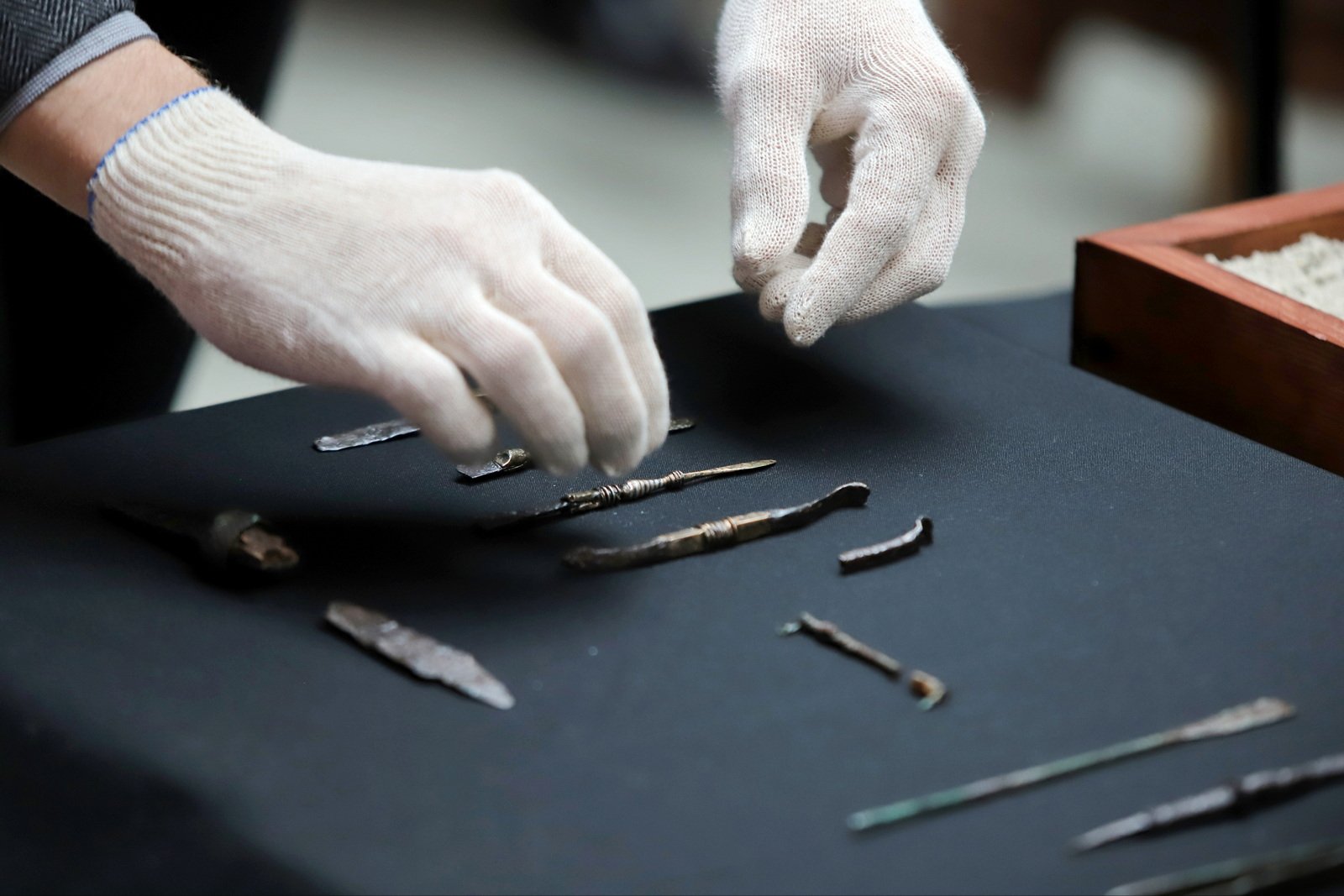
A puzzling set of medical equipment from 2,000 years ago has turned up in Hungary alongside the remains of its owner, an ancient Roman doctor. Archaeologists at Eötvös Loránd University, the Jász Museum, and Eötvös Loránd Research Network unearthed the grave and artifacts near Jászberény, 35 miles east of Budapest, and presented their findings at an April 25 conference.
The discovery has been dubbed “unique in European terms.” Similar kits have been found from Britain throughout the Mediterranean, including a notable set from Pompeii, but the most expansive collection found yet still lives in northern Italy’s Domus del Chirurgo.
Excavations at Jászberény began last year, Telex reported, yielding a wide range of objects from the Copper Age (4,500 to 3,500 B.C.E.) and Avar period (c. 560 and c. 790 CE.), warranting a magnetometer survey. Assistant research fellow Levente Samu said the team had discovered earlier architectural remnants in an Avar cemetery at the site. Students helped excavate an untouched yet shallow grave, revealing a skull, leg bones, and metal tools buried in a wooden box at the body’s feet.
Samu Levente presents the team’s findings. Courtesy of ELTE BTK.
Closer inspection revealed those tools were meant for surgery, including pliers, needles, tweezers, and copper-alloy scalpels fitted with interchangeable steel blades to perform complex procedures. The scalpels featured silver tarsia accents of distinctly Roman aesthetics—confirmed by radiocarbon-dating on the tomb itself, which clocked it at 1st century C.E. The skeleton belonged to a healthy man in his 50s or 60s with no signs of physical trauma. Drug residue dusted his collection, including the grinding stone likely used to mix herbs and medicines.
The quality of this toolkit has researchers wondering how such a well-equipped doctor ended up in the Roman hinterlands. In his time, surgery was a trade like any other—women and freed-people made up a large proportion of varying physicians, specializing in battlefield or home calls.
Next, researchers will conduct DNA testing and isotopic analysis of the skeleton to determine whether he hailed from this transitory time and place in Hungary, went there to heal an important leader, or simply passed through on the military’s tails.